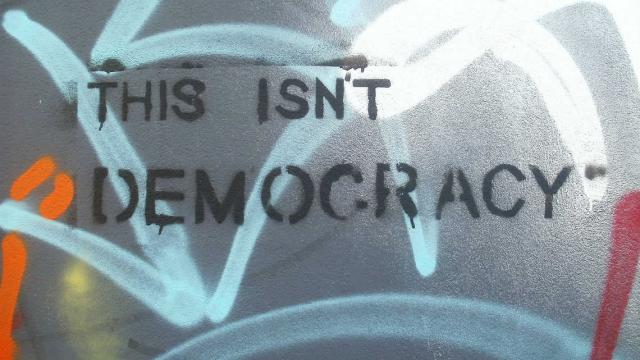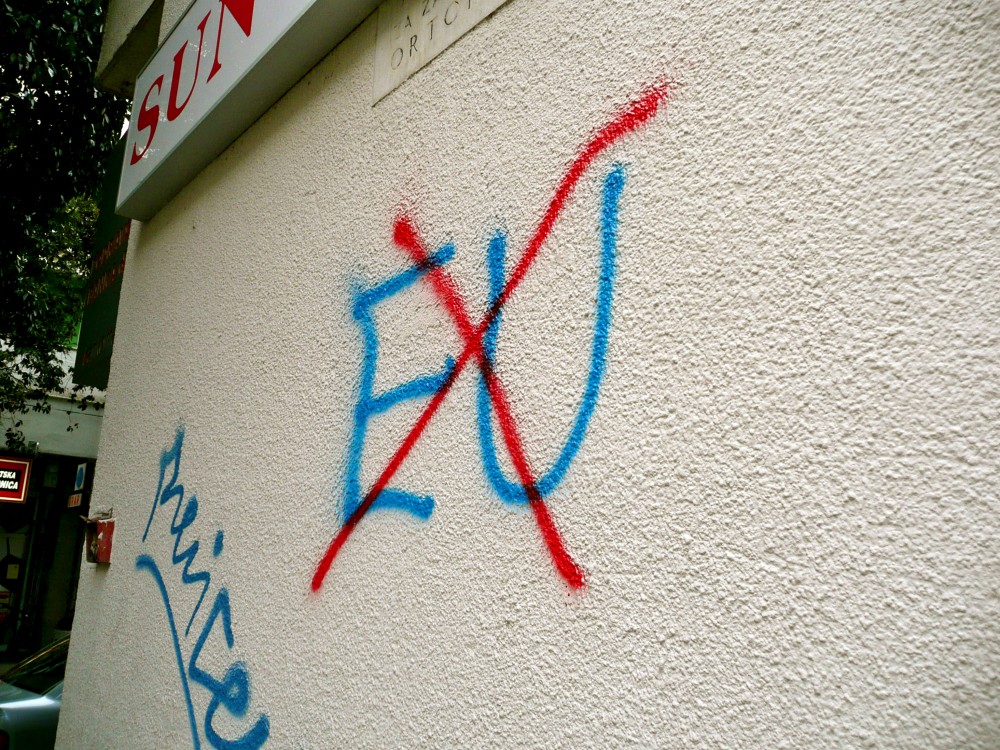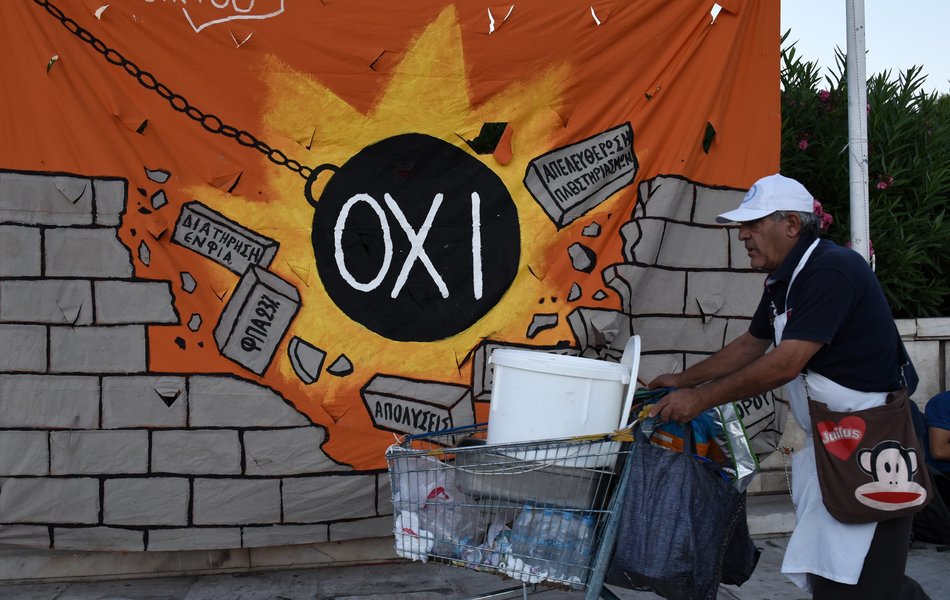
For years, illegitimate and unsustainable debt was used to justify austerity policies driven by unelected European institutions. But the strategy has only worsened inequality and escalated poverty, which many say may now cause the next financial meltdown.
And what do we see now? The European Union is building walls and fences to lock out people displaced by a global financial system that relies on perpetual war and corporate imperialism to survive. In light of current crises, it's no wonder there is growing momentum for a Plan B for Europe, as shown by the thousands who attended the Plan B conference in Madrid last month.
But despite the consensus that we must urgently face these interrelated economic and social crises, there is also some discord on strategy. One critical contention is whether Europeans should transform the European Union, or whether the more progressive option would see the states regain sovereignty.
Democracy in Europe Movement 2025
On Feb. 9 in Berlin, former Greek Finance Minister Yanis Varoufakis launched a trans-European project called Democracy in Europe Movement 2025" (Diem25). Not yet defined as a political party or social movement, it will tour Europe to create a manifesto that reimagines the continent. Its message is this: Europe needs to democratize or it will collapse into authoritarianism and fascism.
Varoufakis later argued the need for Diem25 while speaking at the Plan B convergence in Madrid, suggesting that Old Europe is dying. He drew parallels to the Euro common currency and the manner by which the currencies were fixed a century ago, leading to the 1929 Wall Street Crash.
“2008 is our 1929,” Varoufakis said, “The left failed spectacularly in the 1930s to rise up to the challenge [of fascism] and create a democratic movement to stop monsters emerging from the collapse of Old Europe.”
Today, he says, the left alone cannot resolve the broad economic and political crises, but a broad coalition from across the political spectrum must rise to stop the resurgence of fascism. Driven in party by austerity policies, fascism and xenophobia have been gaining ground in recent years, from Greece and Germany to France and Finland.
Varoufakis, who experienced the inner workings the Eurozone austerity project first-hand, while serving briefly as Greece's finance minister, suggests history will judge the European Central Bank, IMF and other leaders’ tenure as a "comedy of errors":
“They made one mistake, but would not admit it was a mistake. Their errors led to further failure, recession [and] deflation. It was not part of the plan to have 30% loss of national income in Greece, they did not care much about it, but it was not planned. Then, when this happened, failure leads to more authoritarianism, and more failure, and this cycle continues.”
Without a broad coalition united around support for a European democratic alternative, Varoufakis fears the mistakes of the 1930s will be repeated, allowing authoritarianism and fascism to take over once again.
Time for an Exit?
Professor Costas Lapavitsas, also in attendance at the Plan B conference in Madrid, made a counter argument. A former Syriza MP and, like Varoufakis, also a highly esteemed economist, Lapavitsas in 2012 co-authored "Crisis in the Eurozone," one of many far-sighted critiques of the European project that defines the structural problems foretelling today’s crisis. It also asserts the need for the E.U.'s dissolution in order to end austerity.
In Madrid, Lapavitsas laid out reasons why he believes the world faces another imminent economic meltdown, pointing out that those in charge of economic policy are now considering such unorthodox monetary policy as negative interest rates.
“This is the sign that capitalism has come to the end of possible ways of dealing with problems,” he said. Low or negative interest rates will reveal the structural flaws in the banking system, said Lapavitsas, and expose European banks as especially weak.
“The reason that European banks are weak is [that] Europe is weak: it is going nowhere," he said. "Because the European economy is in serious trouble, as is the monetary union and European Union. Because when there is unemployment, no growth and no dynamism, [there is] little capital in big banks. All these problems mean Europe is a step before dying.”
Lapavitsas suggests that any Plan B must recognize this fact, helping to explain why Syriza could not change Europe from within. One key player in the European power struggle was Mario Draghi, chairman of the European Central Bank, who can remove liquidity and starve a country of short-term capital at will. He did this when Greece threatened to divert from the European austerity project, and Lapavitsas points out that other Euro-institutions as well have installed officials who argue that "there is no alternative".
“The myth of Europe must stop for the Left,” Lapavitsas warned. "Europeanism is an ideology that has been perpetrated by the ruling classes of capitalism. The left has accepted it for more than two or three decades. Europe is a hierarchy: large countries dominate smaller ones in Europe and Germany sits at the top.”
An example of this was the solidarity shown for refugees, which came from European society, not Europe's institutions. For Lapavitsas, Europe is beyond reform, which is why countries like Greece should seek to reclaim sovereignty: over their debt, their monetary policy, spending policies, trade policies, employment and productive sectors. Lapavitsas doesn't want this "sovereignty" to be confused with nationalism, however; he wants the left to build a new Europe of independent nations that work together.
The two critical Greek economists, Varoufakis and Lapavitsas, share a great deal of analysis not only pertaining to economics but its effect on politics. Yet they propose differing strategies to reclaim democracy against rising threats of authoritarianism and fascism. One thing they agree on, however, is this: if Europe continues with business as usual, the Union as we know it is doomed.
This is the first installment in a two-part series. Next week, we look at the debate in the United Kingdom, which will hold a referendum in June on whether to leave or remain in the E.U. and what that decision means to the public.
3 WAYS TO SHOW YOUR SUPPORT
- Log in to post comments


















